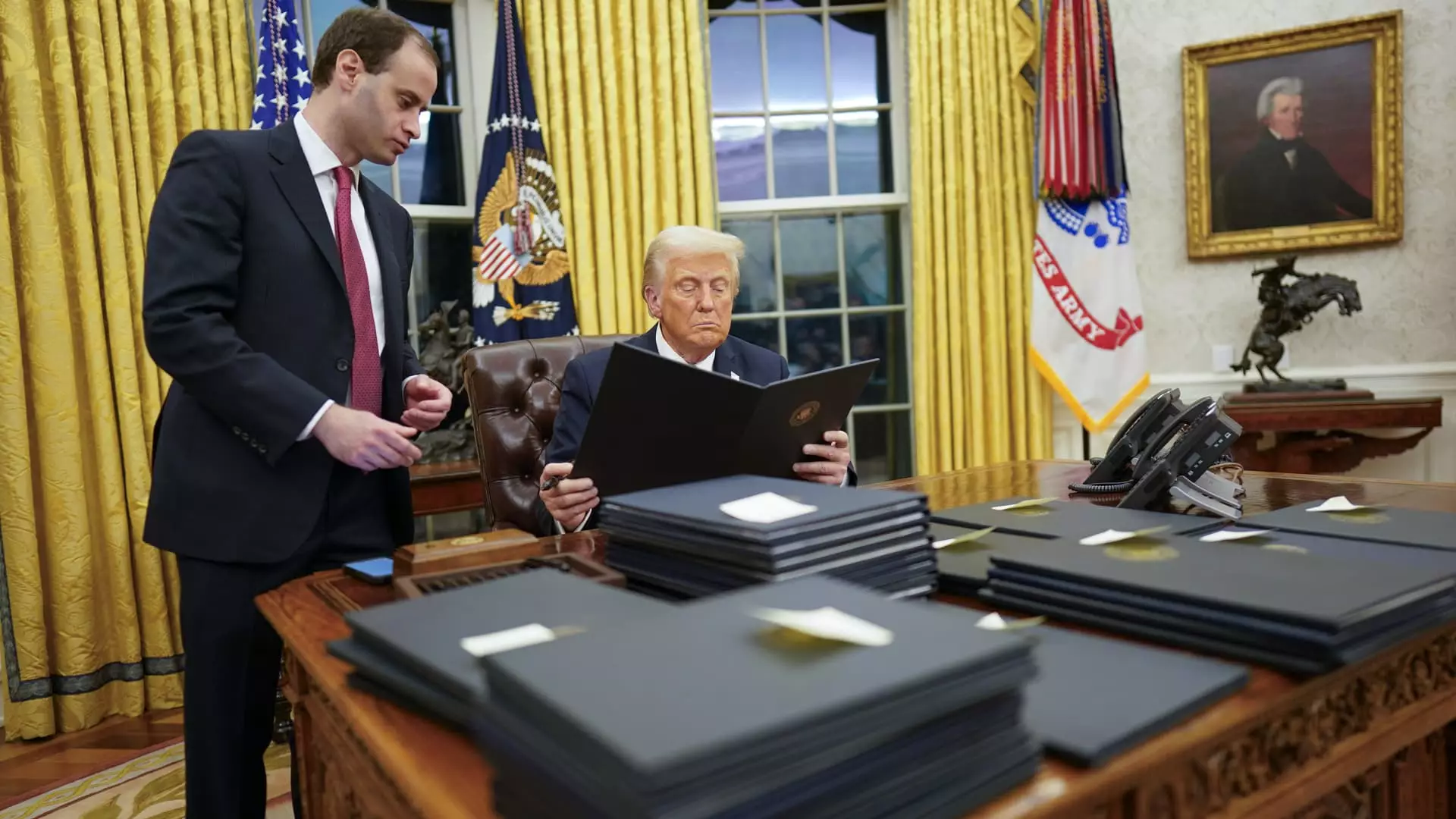The energy policy landscape in the United States underwent a profound transformation at the dawn of President Donald Trump’s administration. Within hours of his inauguration, he executed a series of executive orders aimed at bolstering fossil fuel production while simultaneously rolling back the nation’s commitments to address climate change. This article delves into the implications of these actions and evaluates their potential impact on both the energy sector and the broader environmental landscape.
President Trump’s energy initiatives signaled a sharp departure from the preceding administration’s focus on renewable energy and climate change mitigation. This pivot raises significant questions about the future direction of U.S. energy policy and the potential ramifications for the environment. Trump labeled these early actions as part of a national energy emergency, arguing that the current energy supply was inadequate, particularly in view of the anticipated surges in electricity demand driven by technological advancements and domestic manufacturing growth.
The stark reality is marked by ongoing debates about the reliability of the U.S. power grid. Major operators have warned of potential electricity shortfalls as traditional coal-fired facilities are decommissioned faster than renewable alternatives are integrated. Trump’s orders for federal agencies to invoke emergency powers aim to facilitate energy production and infrastructure development but also underscore the complexities and challenges that lie ahead in terms of balancing demand and environmental concerns.
As Trump signed off on rolling back numerous environmental protections and standards, including those linked to the Paris Agreement, the implications extend beyond immediate energy production. Many of these initiatives are likely to incite legal battles, particularly as environmental organizations and individual states challenge the administration’s authority to reverse established protective measures.
The decision to withdraw from the Paris climate agreement is particularly contentious. By prioritizing fossil fuel initiatives over international environmental obligations, Trump’s administration risks isolating the United States from global climate conversations and initiatives, raising questions about long-term global leadership in addressing climate change. The ambitious goals set by the previous administration, such as achieving net-zero emissions and transitioning to electric vehicles, are now in jeopardy, leaving industries and consumers in a state of uncertainty.
Trump has made a pronounced commitment to the fossil fuel industry, viewing it as a cornerstone of energy independence and economic growth. By rescinding the bans on drilling in coastal waters and facilitating the development of liquefied natural gas (LNG) projects, he seeks to cement the United States’ position as a leading energy producer on the global stage. However, while this approach may appeal to certain sectors of the economy regarding job creation and energy prices, it raises critical questions about sustainability and environmental stewardship.
The fossil fuel sector’s reliance on market conditions poses challenges to Trump’s ambitions. Major industry leaders have indicated that energy production will be influenced primarily by market forces rather than governmental edicts. Furthermore, the pushing of natural gas as a cleaner alternative overlooks the broader context of greenhouse gas emissions and the pressing need for comprehensive climate action.
Wind Energy and Electric Vehicles: A Shift Away from Innovation
In striking contrast to the ambitious attempts to expand clean energy resources, Trump’s administration has targeted sectors like wind energy and electric vehicles—a move that could stifle innovation and investment in sustainable technologies. By pausing leases for wind projects and halting funding for electric vehicle infrastructure, the administration risks undermining the very industries poised to lead the country toward a more sustainable future.
A significant concern arises as investment in renewable energy often spurs job creation and economic diversification. Disregarding these opportunities in favor of traditional energy sources not only jeopardizes the transition to cleaner technologies but also perpetuates reliance on finite resources that directly contribute to global warming.
The energy policies set forth by President Trump encapsulate a dramatic shift in priorities—favoring fossil fuels and reducing climate commitments. While designed to enhance domestic energy production and independence, these initiatives may ultimately trigger legal challenges and economic consequences that create further instability in the energy landscape.
As society grapples with the urgent need for effective climate action, the approach taken by the Trump administration challenges the trajectory toward a sustainable future. The ensuing debates reflect the complexity of balancing immediate economic interests with the long-term health of the planet—a challenge that necessitates a reevaluation of priorities at all levels of governance and industry. The responses to these policies will shape the discourse on energy and climate for years to come, underscoring the critical nature of active civic engagement and regulatory oversight in the face of climate change.


Leave a Reply